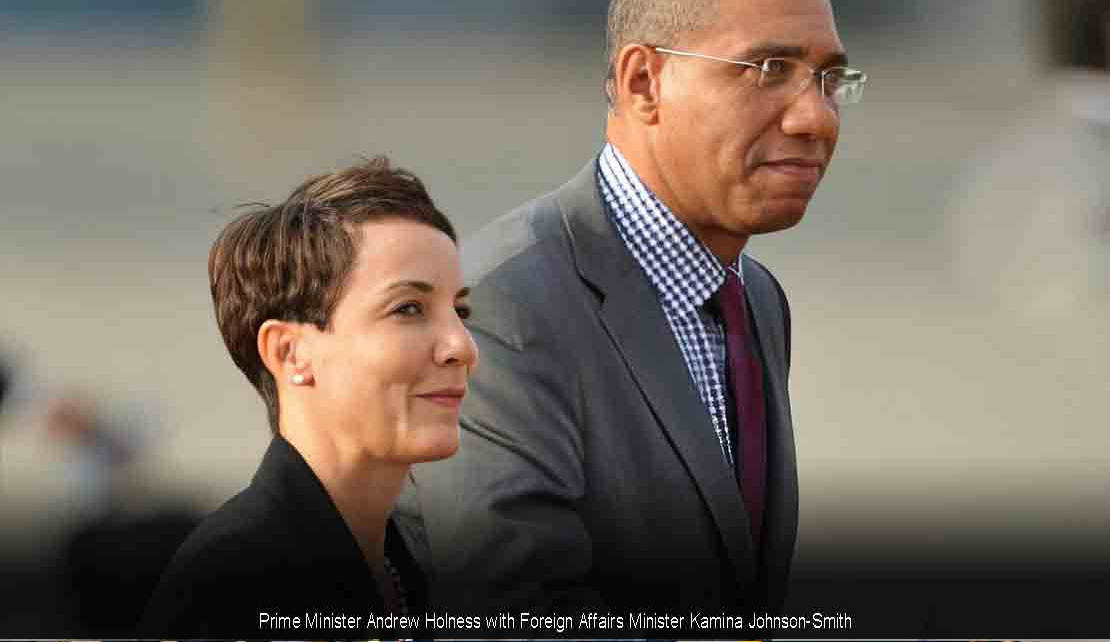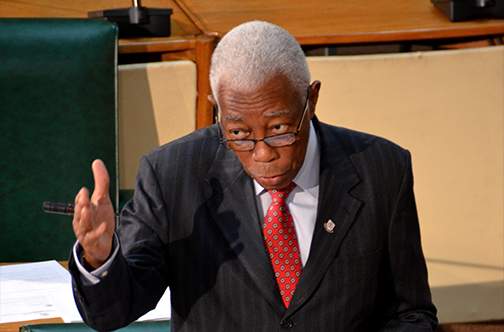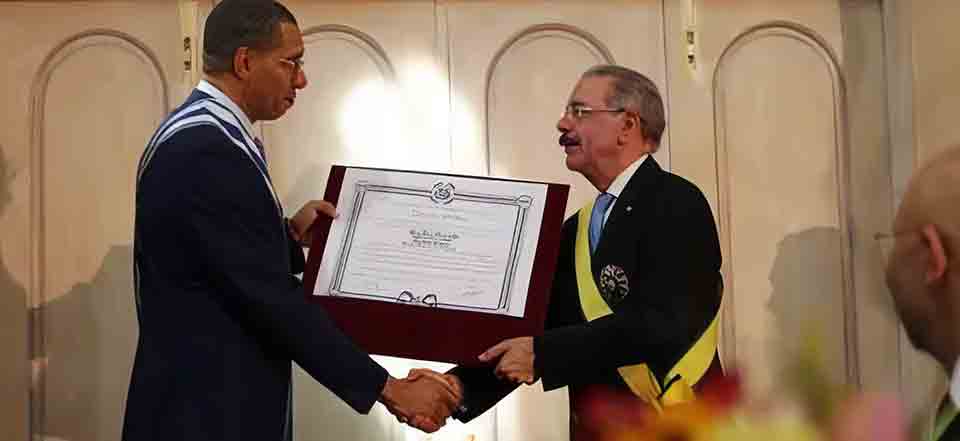JAMAICA'S Foreign & Regional Policy, Spurning the People’s Interest

KINGSTON, January 20, 2024 - It is clear cut! There is a glaring symbiosis between the present Administration's approach to Jamaica embracing the globally acclaimed, accessible Caribbean Court of Justice and their settled modus in pursuing Jamaica's foreign relations initiatives.
Both designs evidence an open rebellion against the paramountcy of government's obligation in a practicing democracy to take decisions that are, without fail, in the best interests of the people.
Resistance to the transition from the British court to the regional institution - a huge benefit-bearing imperative - conflicts directly with our people's entitlement to access to justice in their final court of law.
Enquiring voices demand: "With the focus directed away from 'what's best for the people', on what idea, or on whose authoritative command, is the government's defiance anchored?"

Jamaicans of all stripes exult over how the country's name has been held in high esteem since before gaining political independence. It is never forgotten that Jamaica, in groundbreaking fashion during the Norman Manley-led government of 1955 to 1962, led the way in imposing trade sanctions against apartheid South Africa.
In the first decade along the Independence journey, during Hugh Shearer's prime ministership, despite serious human rights challenges locally, Jamaica was in the vanguard of the visionary push at the United Nations in 1968 for the annual observance of December 10 as International Human Rights Day.
And yet, examination of four foreign relations pursuits during this Administration's eight years in office demonstrates the depth and the spread of the rebellion: the display of an unseemly lack of empathy regarding the treatment meted out to our Haitian neighbours; a distressingly regrettable show of ingratitude toward our economic fortifier, Venezuela; unprincipled in our conduct of business within the Region and in the Commonwealth; and an incomprehensible voting pattern at the United Nations.
First, this Andrew Holness-led government came to power not long after the Dominican Republic Constitutional Court declared all Black persons of Haitian descent within the country's borders, regardless of their previous status, to be stateless. That designation was roundly condemned by the UN and hemispheric and global human rights organizations as being inhumane, and in direct breach of international law. CARICOM, and Jamaica, had joined in the deserved condemnation.

David Comissiong, Barbados ambassador to CARICOM, wrote of the appalling embarrassment to the regional family that was caused by that "act of infamy" by the Jamaican Government. His imposing December 2017 open letter and exhortation is well worth revisiting.
The new cabinet members must have felt themselves bound by some super-influential, irresistible force insisting on a strengthened link being urgently forged between Jamaica House and presidential power in Santo Domingo.
“ The Dominican Republic Constitutional Court declared all Black persons of Haitian descent within the country's borders, regardless of their previous status, to be stateless. That designation was roundly condemned by the UN and hemispheric and global human rights organizations as being inhumane, and in direct breach of international law. CARICOM, and Jamaica, had joined in the deserved condemnation. ”
But how could that gesture escape being recognized as cold, uncaring and insensitive to the enduring plight of neighbouring Haitains? Holness' cabinet would obviously not have been detained by any thinking as to how that positioning of Jamaicans would come to be recorded on that page of history.
Second, the ingratitude shown by this government to Jamaica's friend-in-need, Venezuela, in their hour of profound governance challenges, is unmistakably Un-Jamaican. It was an affront to the long cemented Simon Bolivar connection, and another display of disrespect to Comandante Hugo Chàvez, this time in his final resting place.
Bruce Golding, as prime minister, succeeded in mending fences with President Chàvez after that outrageous road demonstration in Montego Bay - in which Golding in opposition had immersed himself - organised against the Venezuelan Leader as he stretched forth his brotherly hand with the milk of human kindness.
A sense of respect and gratitude having been rekindled under his watch, it is now so very heartrending to have to live with how Jamaica joined with other friendly states with different policy interests, in taking unhelpful positions against the Venezuelans in their time of deep distress.

Third, foreign relations experts place that thoroughly ill-advised challenge to unseat the incumbent Commonwealth Secretary General as perhaps the most misguided miscalculation ever on Jamaica's diplomatic landscape, leaving a searing blot that is not easily erased. The government strenuously denied doing the bidding of a British prime minister.
Jamaicans found themselves, once again during this Administration, directly at odds with a principled position taken by our regional partners. Then CARICOM Chairman, Prime Minister Gaston Browne of Antigua and Barbuda, prophetically declared that awkward policy decision of Jamaica, in going back on its word, to be a "monumental error".
After the inspirational striving of visionaries such as Garvey and Marley to forge strong bonds between our peoples, we dare to hope that the ill-starred 2022 misadventure has not placed Jamaicans at an inflexion point with our esteemed friends on the African continent.
Our government, in its wisdom, chose to project Jamaicans as being indifferent to the entitlement of those countries, nay, prepared to deny them the opportunity of allowing one of their own, to assume the premier Commonwealth position, unforgettably, at a time when it was their due.
Then, fourth, questions have inevitably emerged about three recent United Nations Resolutions touching upon Israeli/Palestinian issues, in which there have been two non votes and one abstention by Jamaica.
Regarding the second non vote, for example, that Resolution's prayer was for support of a call for ceasefire between warring combatants to prevent further severe loss of life. The government's excuse was that the voting closed while discussions between New York and Kingston were ongoing.
Among the inescapable questions: What on Earth would such "ongoing discussions" have been about, concerning a vote on a Resolution which sought, on humanitarian grounds, to prevent devastating loss of life? How many countries, other than Jamaica, trundled themselves into that thorn-filled predicament? Is Jamaica's government beholden somewhere else?
Jamaica's image that is mirrored in those decisions coincides with the reflection from the intransigence that this government has shamelessly embraced by blocking efforts to regularise the untenable situation that has too long existed at the apex of our judicial system, hanging onto the belt of imperialism.
Are there hidden, controlling powers? The Jamaican people are being openly short-changed by their government; being shafted by their handsomely compensated employees.
No government is perfect. But one that is indifferent to how their people are regarded, spurning their best interests, coming up far short in caring about how they are perceived, is openly engaged in rebellion against the creation of the just society.
Strikingly, the in-your-face example is the prolonged refusal to table the CCJ bills, unconscionably denying our citizens the uplifting and confidence-building experience of thankfully holding a winning hand, at long last.
The people have no recourse; no remedy is open to them: their employees' rebellion, whether they are in government or in opposition, reigns supreme.
Is such an unchallengeable barrier to the people's entitlement justified in a free and democratic society? Or, is it not shocking injustice?
AJ NICHOLSON
